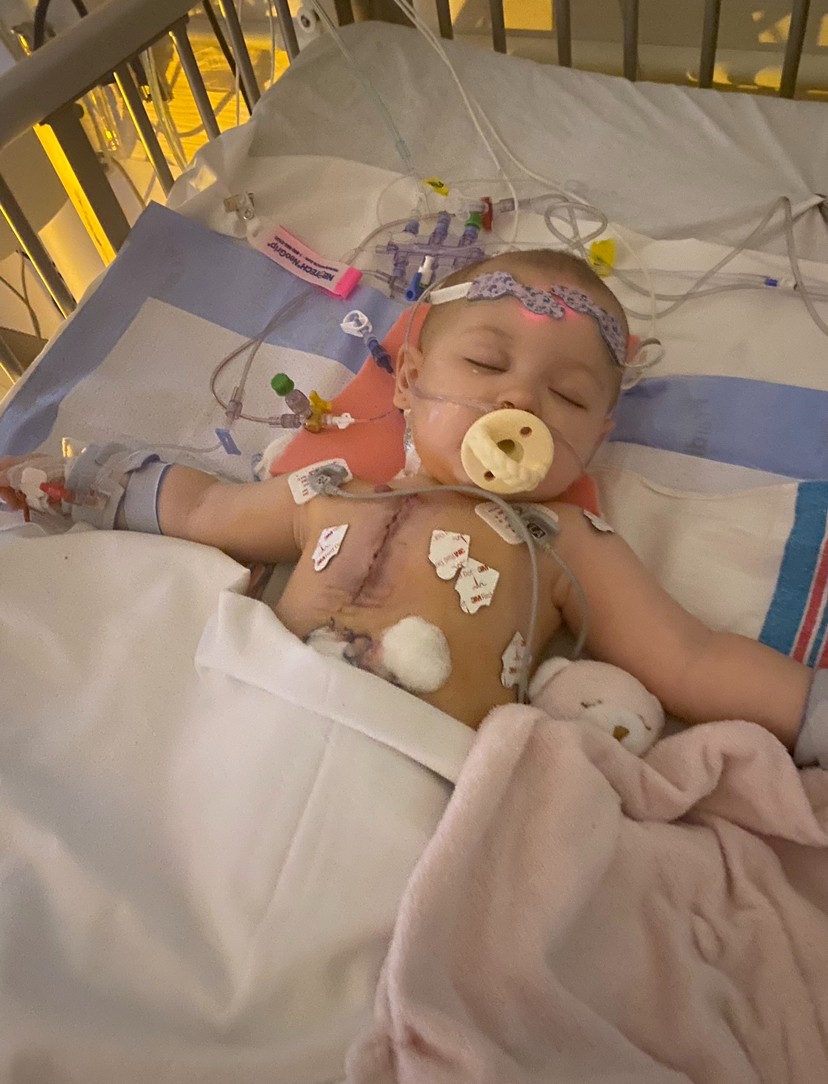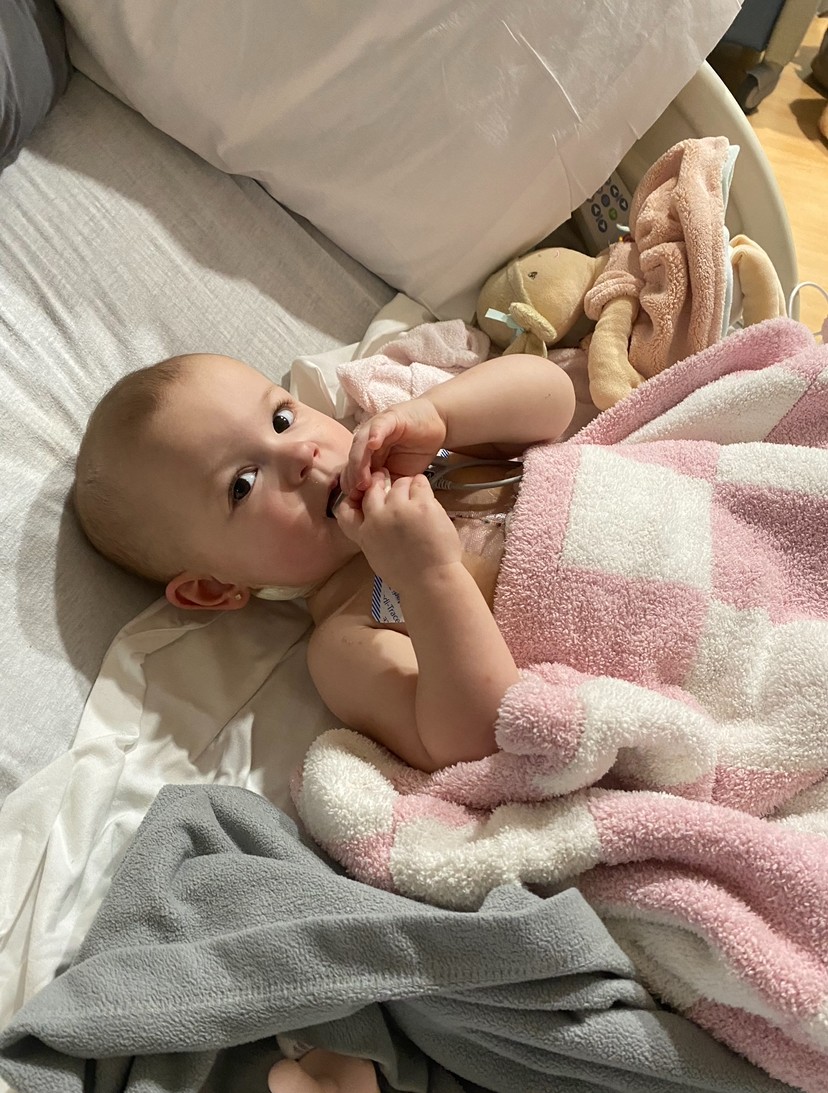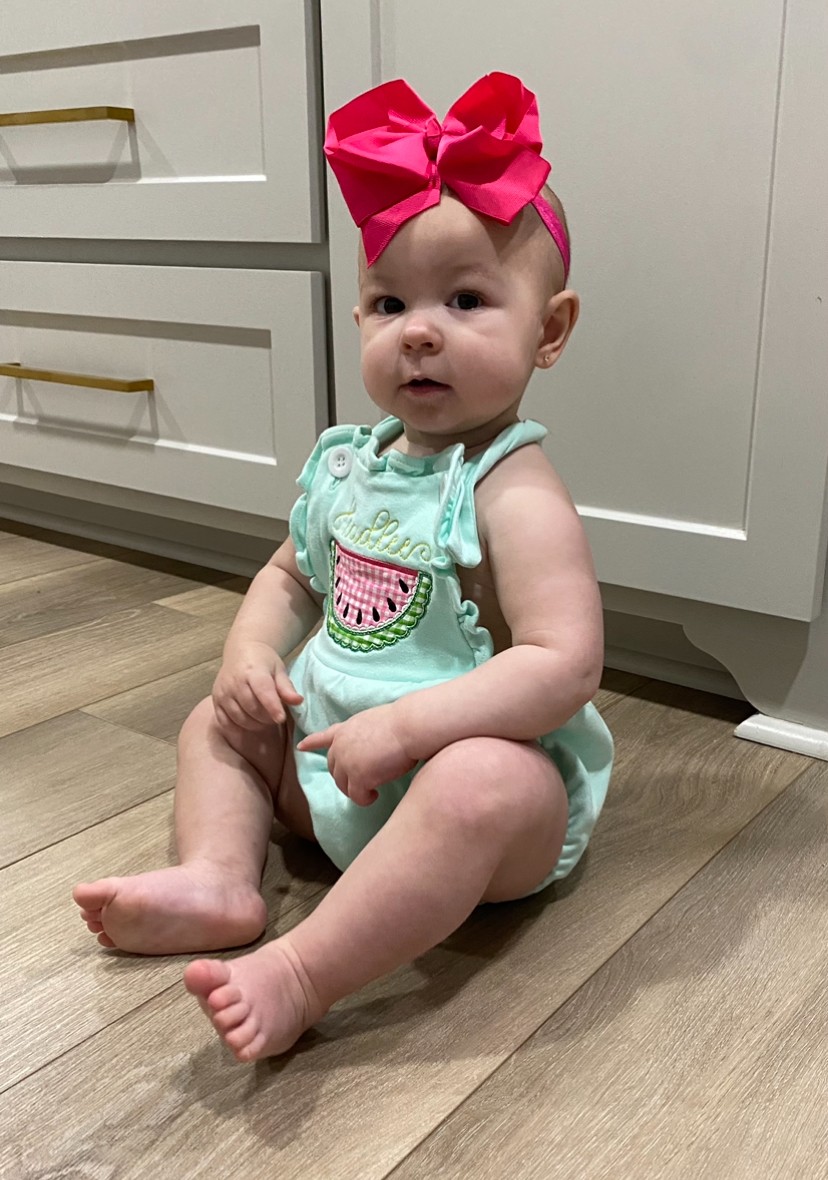A twin's triumph: From heart murmur to heart warrior, Hadlee’s journey to a healthy heart
- Category: Patient Stories
- Posted on:

When Maggie and Cody Fontenot discovered they were expecting twins, their hearts were filled with joy and anticipation. They envisioned Hadlee and her brother growing up healthy and strong. However, life had different plans that tested their strength and resilience when their brave little girl was diagnosed with an unexpected heart condition.
When Hadlee was born, she seemed perfectly healthy despite a heart murmur noted by the hospital doctor. By the time they were discharged, the heart murmur was gone. As far as the Fontenots knew, their baby was fine. However, at Hadlee’s 10-week pediatrician appointment, the heart murmur was detected again.
“When we went to the pediatrician’s office, he asked if I had followed up on the heart murmur,” said Maggie. “I told him no because the doctor who discharged us didn’t hear it. The pediatrician then said, ‘Oh no, she definitely has a murmur.’” 
Hadlee’s pediatrician referred them to Durga Naidu, MD, a pediatric cardiologist affiliated with Children’s Hospital New Orleans. They met Dr. Naidu the next day to evaluate Hadlee’s heartbeat.
After an electrocardiogram (EKG) to record the heart's electrical activity, an ultrasound to create images of the heart, and a heart scan to provide detailed pictures of its structure and function, Dr. Naidu explained that Hadlee had Tetralogy of Fallot, a congenital heart defect affecting normal blood flow. Though she didn't have all four components, she had two significant ones: a ventricular septal defect (VSD), a hole in the wall separating the heart's lower chambers, and a double-chambered right ventricle, where an abnormal muscle bundle divides the right ventricle into two chambers.
“As a first-time mom, I was nervous,” recalled Maggie. “The news was overwhelming, and I couldn’t hold back my tears. Dr. Naidu assured me that everything could be fixed with one surgery. He explained the conditions and drew diagrams that helped me understand the severity and the need for surgery.” 
Looking back, the Fontenots realized Hadlee’s subtle symptoms – like difficulty with eating and frequent vomiting initially attributed to acid reflux – were actually signs of an underlying heart condition. Her heart anomalies caused excessive blood flow to her lungs and placed additional strain on her heart. This fluid buildup made it difficult for Hadlee to eat and digest food properly. Dr. Naidu prescribed medication to reduce the fluid in her lungs, which gradually improved her ability to eat and helped her keep food down. She was also given a blood pressure medication to help slow her heart rate.
For six months, the Fontenots managed Hadlee’s condition with medication, waiting for the right time for heart surgery. The doctors advised postponing her heart surgery due to the flu, COVID-19, and RSV seasons, prioritizing Hadlee’s safety. They wanted to ensure she was not exposed to these viruses, which could complicate her condition and recovery. By delaying the surgery, they aimed to protect her from additional health risks and ensure she would be in the best possible state for a successful procedure.
When Hadlee was a little over a year old, Timothy Pettitt, MD, a congenital heart surgeon at Children's Hospital New Orleans, performed her open-heart surgery on May 7, 2024.
Dr. Pettitt repaired Hadlee's heart through a meticulous surgical procedure. To address the ventricular septal defect, he placed a patch over the hole in the wall separating the two lower chambers of her heart, ensuring that oxygen-rich and oxygen-poor blood no longer mixed. He then performed a right ventricle muscle bundle resection to remove the abnormal muscle bundle that divided the right ventricle into two chambers, which was obstructing blood flow. Although the muscle bundle was more extensive than initially expected, Dr. Pettitt removed all of it, restoring proper function to Hadlee's heart. 
“Dr. Pettitt and his team were exceptional,” said Maggie. “Before the surgery, they explained everything to us in a way that was easy to understand. They also provided an app that gave us timely updates throughout Hadlee’s surgery. These updates were incredibly reassuring, keeping us informed and alleviating our anxiety. Their thoroughness and attentiveness made us feel comfortable and cared for.”
After heart surgery, Hadlee had drains placed to remove excess fluid that may accumulate around the heart or in the chest cavity post-surgery, aiding in the recovery process. Each day, Hadlee showed improvement, focusing on eating and drinking well. As long as her blood work remained stable, and after a few days in the cardiac intensive care unit (CICU), Hadlee was strong enough to be discharged home.
Since her surgery, 1-year-old Hadlee is thriving. The Fontenots describe their daughter as full of life. “She’s a spicy, sweet girl who knows what she wants and isn’t afraid to let you know. She is such a happy baby with a vibrant personality and her strength has inspired everyone around her. She is our miracle.”
With Hadlee doing remarkably well, her follow-up visits with her cardiologist are now every six months.
While finding out your child has a heart diagnosis can be emotionally tough, the Fontenots' message to other families facing similar challenges is this: “You need to rely on your faith. It’s one of the hardest things you will go through, and it’s scary, and you are just so worried about your child. But at the end of the day, all you can do is trust the doctors, pray for the best, and believe there is a light at the end of the tunnel. We are grateful that our daughter is doing well and that this chapter of our life is behind us.”
To learn more about the Heart Center at Children’s Hospital New Orleans, visit https://www.chnola.org/services/heart-center/



